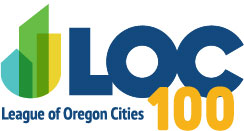LOC News
Federal CARES Act Resources and Program Flexibilities May Support Local Housing and Public Service Partnerships
While we await further guidance from the federal government on the resources coming to Oregon through the Coronavirus Aid, Relief, and Economic Security (CARES) Act, the National League of Cities (NLC) and the National Low Income Housing Coalition (NLIHC) are partnering to provide resources and technical assistance to cities and housing providers. Their recent guidance encourages cities to explore new CARES Act funding and flexibilities to federal programs including Community Development Block Grants (CDBG), HOME, and the Emergency Solutions Grants (ESG). The NLIHC also has guidance on working with FEMA to address COVID-19 housing and homelessness needs.
These programs are best accessed and implemented through local partnerships with counties, housing authorities, community action agencies, and other nonprofits and may be tapped for efforts such as: supporting and expanding homeless shelters to accommodate social distancing; providing and manufacturing PPE; hygiene and healthcare services; funding hotel/motel vouchers and rental and mortgage assistance; and supporting local nonprofits like food banks, meal and medicine delivery, and more.
Community Development Block Grant (CDBG) Updates
Oregon will receive an additional $20.9M in CDBG funding through the CARES Act. Entitlement cities receive CDBG directly and have greater flexibility under the CARES Act to direct those funds to support local housing and service providers. Non-entitlement cities who apply to the state for CDBG are encouraged to complete the LOC survey sent yesterday to city managers and recorders. The LOC will be submitting public comment to Business Oregon on Monday regarding the department’s recent proposal on how to prioritize an initial CDBG offering for COVID-19 response.
Oregon Partnership Examples
Pendleton City Councilor Carole Innes spearheaded a project that is housing more than 60 residents in a local motel. This effort was made possible through partnership at multiple levels, starting with state funding granted to the local community action agency, and supported by local non-profits providing meals, clothing and supplies, as well as safety guidance from the Pendleton police chief. As local housing providers begin to reach their funding limits, cities and counties may be able to lend aid through FEMA grants or CDBG funds. Cities interested in partnering with local motels to house vulnerable residents should contact Nicole Peterson at the Oregon Restaurant and Lodging Association at npeterson@oregonrla.org. More than 360 hotels and motels in Oregon have volunteered their facilities to house homeless Oregonians and front-line workers. Nicole is eager to connect cities and housing providers with local hotels and motels, and ORLA is supporting their efforts with health safety and cleaning guidance, model leases, and more.
In Linn and Benton counties, the local food bank had the creative idea to partner with local catering companies. Out-of-work catering staff are helping staff the food bank at a time when demand is high and many of the regular food bank volunteers are high-risk and staying safe at home. The food bank is also looking to open additional sites, and is exploring the potential to partner with local restaurants that have closed, potentially using their space and staff to prepare and offer food to Oregonians in need, and reducing residents’ need to travel out of town to feed their families. Governor Brown’s recent decision to provide $8 million to the Oregon Food Bank was a welcome announcement that will support the critical work of food banks statewide. Entitlement cities may also tap their CDBG funds to support local food banks and meal delivery.
Cities are encouraged to report their local programs and initiatives to the National League of Cities, which is cataloguing city COVID-19 response efforts.
Contact: Ariel Nelson, Lobbyist - anelson@orcities.org
Last Updated 4/17/20

